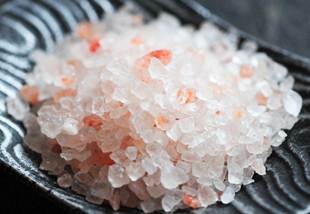It is estimated that psoriasis affects 2-2.6% of the population. Psoriasis is a chronic autoimmune skin condition. It is characterized by silvery yellow thickened skin patches, typically found on elbows, knees scalp, hands and feet, although it can affect other areas of the body. (1, 2)
Psoriasis is not a contagious illness. This autoimmune skin disease can cause scaling and inflammation. Healthy skin cells mature in approximately one month, but psoriatic skin cell can mature in three to six days. Psoriasis can be more than annoying, 30% of individuals with psoriasis can potentially develop psoriatic arthritis, which can be a debilitating joint condition. (3)
Contributing factors
Doctors of natural health have found many contributing factors to psoriasis including:
-Poor diet
-Stress
-Vitamin deficiency
-Poor liver function
In addition, psoriasis has triggers that cause flare ups which vary from individual to individual. Common triggers can include stress, injury to the skin and some medications such as Lithium, Quinidine, and Indomethacin. (4)
Psoriasis Symptoms
Psoriasis can go through periods of flaring up for a few weeks or months. The symptoms can subside and even go into remission. There are also multiple types of psoriasis. (5, 6)
Common symptoms of psoriasis can include:
Dandruff on the scalp
Skin that cracks, bleeds or bruises easily
Skin that is itchy and painful
Patches of red skin that can be scaled with silver or white flakes
Natural Options for Psoriasis
Many traditional treatments can provide some relief, however when the treatment stops, so do the benefits. Conventional treatments include immunosuppressant drugs, steroids, creams and light therapy.
In addition to conventional treatments, there are many options for you to have a proactive role in managing psoriasis and minimizing your flare ups.
Dietary Changes –Since psoriasis is also an inflammatory illness, many individuals have benefitted from an anti-inflammatory diet and lifestyle changes that are geared towards lowering inflammation. Consider avoiding foods that increase inflammation such as: dairy, processed foods, nightshades, refined sugar and fatty red meat. (7)
Reduce Your Stress-–Stress can cause flare ups. Consider trying meditation, yoga or any activity that you find relaxing.
Avoid Conventional Soaps-Look for perfume free, organic soaps with healthy oils that don’t dry out your skin.
Turmeric- Many individuals who add turmeric to their diets or take it in supplement form find that it minimized their psoriasis and flare ups. This 2012 study links turmeric’s ability to alter TNF cytokine expression to its success in minimizing psoriasis symptoms. (8)
Aloe Vera-This gel is soothing and moisturizing for your skin. It can be applied to the skin as needed to help reduce redness, inflammation and scaling.
Warm Baths– Soaking in a warm bath with Epsom Salt, Dead Sea salt or oats can soothe your skin and reduce itching. Applying a moisturizer after your bath may also help to soothe skin.
Drink Water-Make sure you’re drinking plenty of water to stay hydrated.
Homeopathy-Talk with your homeopath about options for psoriasis symptoms. Studies show improvement in symptoms with homeopathics and in overall quality of life. (9)
Topical Creams – Topical creams that include avocado and B12 cream and Oregon grape root can improve symptoms. (10, 11)
Weight Loss– Some recent studies have also linked obesity to an increased risk for psoriasis as well as increased severity of the illness. An additional study in 2014 published in the British Journal of Dermatology also noted an association between weight loss and a reduction in psoriasis severity. (12, 13)
Add Supplements-Talk with your practitioner about what supplements and quantities are appropriate for your condition. Consider:
Omega 3 Fatty Acids-This helps to reduce inflammation. 1-3 grams daily.
MSM-This sulphur based supplement can help to reduce joint pain. 1-3 grams daily. (14)
Evening Primrose Oil-This fatty acid promotes healthy skin, nails and hair. 500 milligrams twice daily.
Probiotics– These are great to reduce inflammation, improve digestion and boost your immunity.
D3-Taking 5,000 IU’s of D3 may help to reduce skin growth.
Hydrochloric Acid– Taking 1-3 capsules daily may help to decrease flare ups. (15)
Milk Thistle-Taking 250 milligrams three times daily can reduce cellular growth, as well as help with liver detoxification.
In conclusion
Psoriasis is a chronic autoimmune and inflammatory condition. There are many options for you to have a proactive role in your healthcare.
Talk with your health care practitioner to develop a plan that works for you. Topics to discuss:
Ways to boost your immune system.
Nutritional and supplemental support.
Anti-inflammatory diet.
References:
- NIH Fact Sheets – Psoriasis. (n.d.). Retrieved May 16, 2018, from https://report.nih.gov/nihfactsheets/ViewFactSheet.aspx?csid=61
- The Immune System and Psoriatic Disease. (n.d.). Retrieved May 16, 2018, from https://www.psoriasis.org/research/science-of-psoriasis/immune-system
- Psoriatic Arthritis. (n.d.). Retrieved May 16, 2018, from https://www.arthritis.org/about-arthritis/types/psoriatic-arthritis/
- Causes and Triggers. (n.d.). Retrieved May 16, 2018, from https://www.psoriasis.org/about-psoriasis/causes
- Psoriasis. (2018, March 06). Retrieved May 16, 2018, from https://www.mayoclinic.org/diseases-conditions/psoriasis/symptoms-causes/syc-20355840
- Psoriasis. (2018, March 06). Retrieved May 16, 2018, from https://www.mayoclinic.org/diseases-conditions/psoriasis/symptoms-causes/syc-20355840
- Treating psoriasis: Diet and nutrition | National Psoriasis Foundation. (n.d.). Retrieved May 16, 2018, from https://www.psoriasis.org/about-psoriasis/treatments/alternative/diet-supplements
- Shehzad, A., Rehman, G., & Lee, Y. S. (2012, December 22). Curcumin in inflammatory diseases. Retrieved May 16, 2018, from https://iubmb.onlinelibrary.wiley.com/doi/full/10.1002/biof.1066
- Witt, C. M., Lüdtke, R., & Willich, S. N. (2009, May). Homeopathic treatment of patients with psoriasis–a prospective observational study with 2 years follow-up. Retrieved May 16, 2018, from https://www.ncbi.nlm.nih.gov/pubmed/19192019
- 3 Top Psoriasis Home Remedies: Oregon Grape, Omega 3, and Aloe Vera for Rash Treatment. (2018, February 22). Retrieved May 16, 2018, from https://universityhealthnews.com/daily/pain/3-top-psoriasis-home-remedies-oregon-grape-omega-3-and-aloe-vera-for-rash-treatment/
- Gulliver, W. P., & Donsky, H. J. (n.d.). A report on three recent clinical trials using Mahonia aquifolium 10% topical cream and a review of the worldwide clinical experience with Mahonia aquifolium for the treatment of plaque psoriasis. Retrieved May 16, 2018, from https://www.ncbi.nlm.nih.gov/pubmed/16148424
- Carrascosa, J. M., Rocamora, V., Fernandez-Torres, R. M., Jimenez-Puya, R., Moreno, J. C., Coll-Puigserver, N., & Fonseca, E. (n.d.). Obesity and psoriasis: Inflammatory nature of obesity, relationship between psoriasis and obesity, and therapeutic implications. Retrieved May 16, 2018, from https://www.ncbi.nlm.nih.gov/pubmed/23177976
- Naldi, L., Conti, A., Cazzaniga, S., Patrizi, A., Pazzaglia, M., Lanzoni, A., . . . Pellacani, G. (2014, March 12). Diet and physical exercise in psoriasis: A randomized controlled trial. Retrieved May 16, 2018, from https://onlinelibrary.wiley.com/doi/full/10.1111/bjd.12735
- Kim, L. S., Axelrod, L. J., Howard, P., Buratovich, N., & Waters, R. F. (2006, March). Efficacy of methylsulfonylmethane (MSM) in osteoarthritis pain of the knee: A pilot clinical trial. Retrieved May 16, 2018, from https://www.ncbi.nlm.nih.gov/pubmed/16309928
- Hydrochloric Acid and Health. (2017, August 01). Retrieved May 16, 2018, from https://www.candidaplan.com/hydrochloric-acid-and-health/
This article was originally posted at The Hearty Soul








